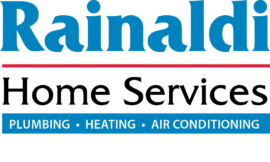Hurricane season has begun, and we have until November 30, 2015 to keep a watchful eye on storm systems as they develop around us in the Atlantic.
The National Oceanic and Atmospheric Administration (NOAA) has predicted a near normal Atlantic season; however, one must not overlook the importance of preparing for the impact.
Joe Nimmich, FEMA's associate administrator for Response and Recovery warns, “It only takes one hurricane or tropical storm making landfall to have disastrous impacts on our communities.”
Preparation is key to minimizing impact to your family and your home. NOAA has published Hurricane Preparedness guidance to follow as you prepare for the season.
We have also put together a list of tips to protect your basement and air conditioning system in the case of such a storm.
Gather Supplies in Advance
Putting together a supply kit of items essential for survival is your first step in preparing for a major storm. It should include a weather radio, first-aid kit, flashlights with backup batteries, candles, matches and a seven day supply of all medication for every member of your family. You should also prepare one gallon of water per day for each person as well as enough canned and non-perishable food to last a week.
Don’t Forget Your Sump Pump to prevent your basement from flooding
• Check the battery backup to ensure it is operating correctly.
• If you don’t already have a battery backup, a water powered option is a good choice. A backup is there to ensure your sump pump continues working in the case of an extended power outage.
• Finally, remove any built up sediment in your sump pump.
Secure Your Outdoor Air Conditioning Unit and Batten Down the Hatches
• Turn your air conditioning system off at the circuit breaker in case of a power surge.
• Use hurricane straps to secure your system from movement. You should also tighten the bolts that secure the unit to the base.
• Move all loose objects indoors, especially those that could damage your system.
The Storm has Passed
After the storm has passed, inspect your outdoor unit for signs of damage as soon as possible. Look for areas that are cracked, impacted, or show signs of shifting, flooding or salt-water damage. If you confirm any signs of damage, your air conditioner may be unsafe to operate. You should call a licensed professional to inspect, repair or replace your system.
For more helpful tips or information about your home’s plumbing or air conditioning, please visit the Rainaldi Plumbing website or blog. If you live in our Orlando, Florida service area, please give us a call or schedule online.
